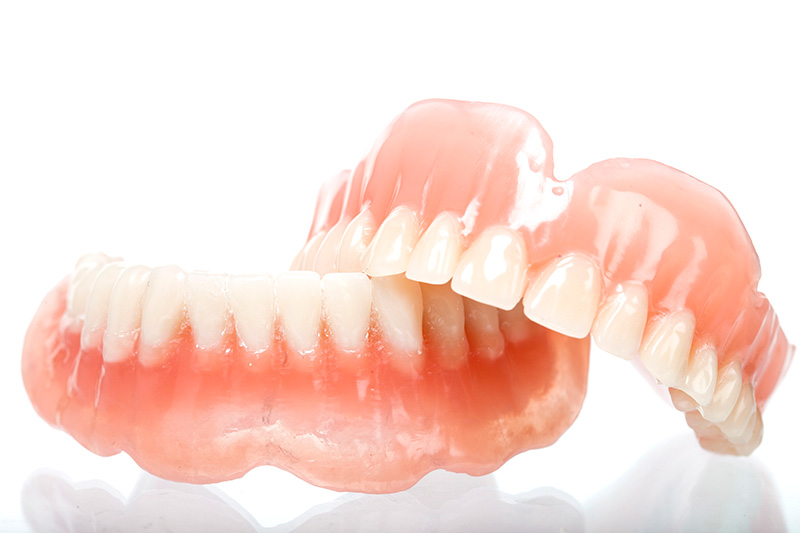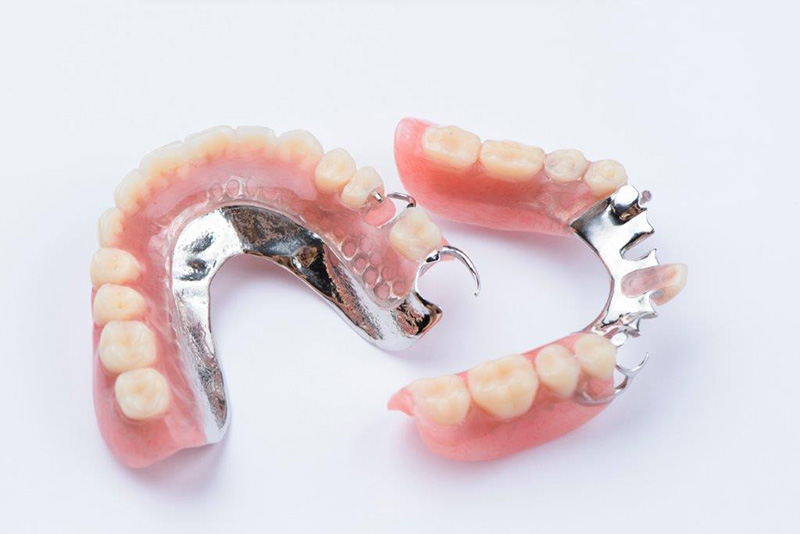Dentures
Dentures are removable oral appliances that replace missing teeth in your upper jaw, lower jaw or both. Dental technicians craft dentures from materials like acrylic, resin, nylon, metal and porcelain.
Types of dentures
There are many different types of dentures. Dr. Yang can discuss with you what option is right for you. It depends on your unique oral health needs.
Full Dentures
Also called a complete denture, this appliance replaces an entire arch of missing teeth. A full denture rests atop your gums and relies on your palate (the roof of your mouth) or lower jawbone ridge for support. You may need to use denture adhesive (a special type of glue) to keep your appliance firmly in place.
Full dentures are likely what comes to mind when you think about traditional dentures. They consist of artificial teeth and a gum-colored base.
People who wear dentures usually take them out at night to clean them and give their gums a rest.

Partial Dentures
If you’re missing several or most of your teeth in one or both jaws, partial dentures may be an option. Partial dentures are similar to full denture, as they also rely on your gums and underlying bone for support. Partial dentures also have special clasps that hook around your remaining natural teeth, providing additional stability.

Intermediate Dentures
Sometimes people need tooth extractions before they can wear dentures. An immediate denture is a device you wear right after extractions.
In some cases, immediate dentures are temporary appliances. Once you’ve healed, Dr. Yang will replace them with your final dentures. In other cases, you might be able to wear your final denture immediately after surgery. Dr. Yang can tell you what to expect in your situation.
Denture Care and Maintenance
Dentures, like normal teeth, require daily maintenance to stay clean and keep bacteria from growing inside of your mouth. Keep your denture clean and your smile healthy.
- Placing a denture in water (or a denture cleanser solution) when it is not being worn helps the denture retain its shape, remain pliable and keeps it from drying out.
- Dentures should never be placed in hot or boiling water, which could cause them to warp.
- Denture adhesives are not a remedy for ill-fitting dentures, which may need to be relined or replaced to prevent oral sores from developing.
We are always happy to help our patients here at Wisconsin Dental Improvements and always want you to feel free to call us at any time with questions you may have with your dentures.









